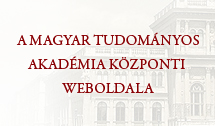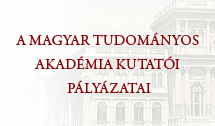László Bernáth is giving a talk at the workshop on "Reassessing Responsibility - Why Knowing What One Is Doing Matters" organized by the University of Cambridge on the 21-22nd of April. His talk is entitled: "Is Tracing in Trouble?"
Abstract:
One puzzle about moral responsibility is how agents may be responsible for beliefs, emotions, character traits, attitudes and unintentional omissions if they are unable to control these states and events. A popular way of solving this puzzle is to embrace the Trace theory of moral responsibility (van Inwagen 1989, Kane 1999). The Trace theory claims that agents do exercise indirect control over the states and events in question, because these can be traced back to choices that were under their direct control. Although most philosophers accept that there are cases where tracing correctly explains why we should attribute responsibility, many argue that it fails to do so in the vast majority of the cases. According to the Epistemic Argument (Vargas 2005, Shabo 2015), if we trace back the source of responsibility to a distant time, it is implausible that the agent is able to satisfy the Standard Epistemic Principle (SEP). SEP says that an agent is responsible for a consequence of her action only if she knew or should have known that the action may have the consequence in question. Further, some philosophers question whether tracing can provide sufficient control over the problematic states and events (Huoranszki 2011). They argue that choosing and acting cannot ensure that the agent in question will develop the proper characteristic traits and attitudes.
In my paper, I attempt to show that Trace theories are able to deal with both difficulties through reformulating epistemic and control-conditions of moral responsibility. In the first section, I discuss a thought experiment that is meant to demonstrate two things. The first is that SEP is false. The second is the idea that, plausibly, agents do not have to exercise control over the occurrence of the consequence to be responsible for it. In the final section, I show how the weakened epistemological and control-conditions can help dealing with the two arguments against Trace-theories. In a nutshell, given that as it is enough for responsibility for consequences that the values of the decision and the consequences fit, responsibility for character traits does not presuppose that the agent knows or controls the consequence of her earlier decision that resulted in her later character trait, attitude, emotions, beliefs and omissions. It is enough if the agent knew (or should have known) that her decision had positive or negative value.


